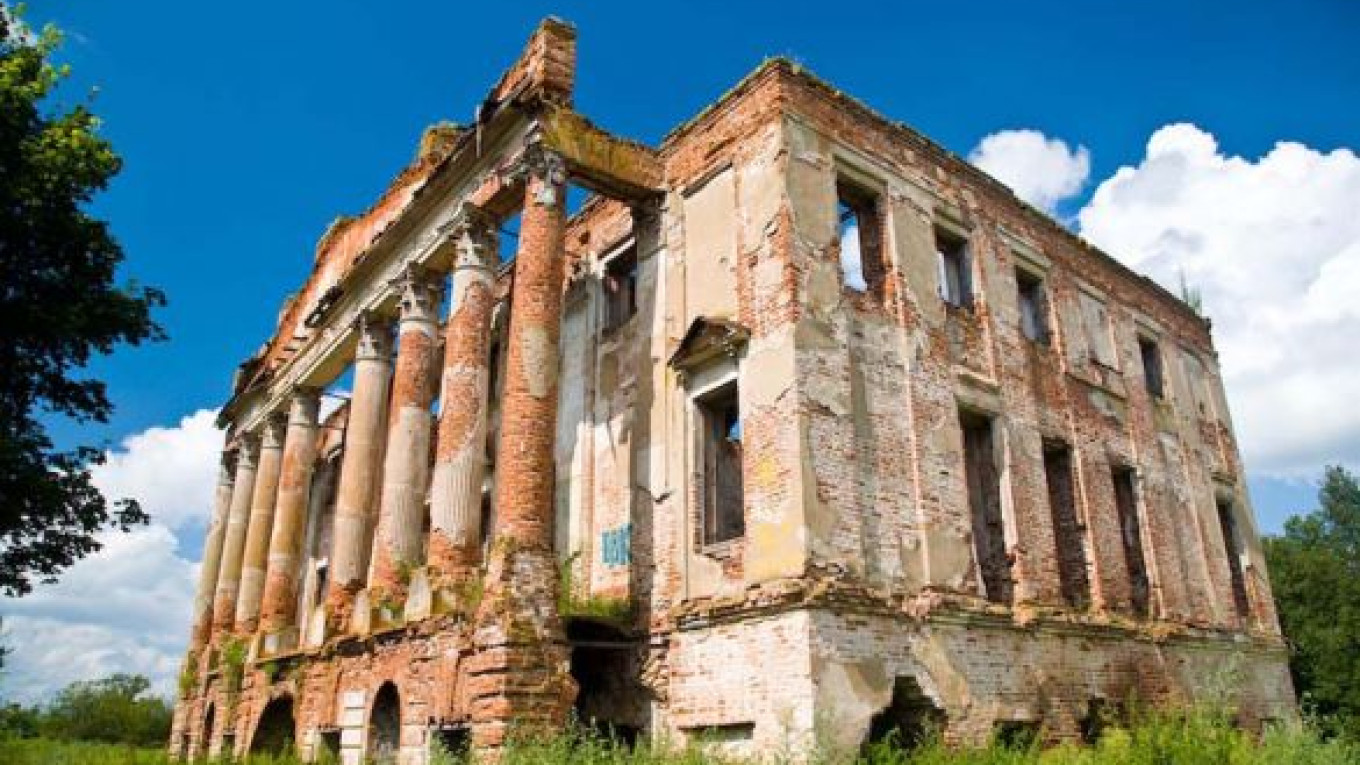Public-private partnerships in Russia are moving away from a traditional focus on large infrastructure projects toward more modest, regional-based activities, participants at a conference said Wednesday.
Such joint enterprises between government agencies and private companies — also known as PPPs — are increasingly being used as vehicles for financing education, health care and cultural ventures.
In a country where the massive upgrade of St. Petersburg's Pulkovo Airport is the flagship PPP, one of the partnerships' more unlikely current champions is the Moscow region's Culture Ministry.
The restoration of the Moscow region's 103 tsarist estates — many of which are crumbling — is a top priority, Deputy Culture Minister Svetlana Gorushkina said on the sidelines of the conference, organized by the Association of European Businesses. Unable to afford to develop the sites themselves, she said, the ministry is seeking private investment through PPPs.
A ruined 17th-century palace more than 100 kilometers from Moscow, Pushchino-on-Nara is one of the targets. If the estate were restored, Gorushkina said, "it would be appropriate for use as a vacation home or as a resort."
Smaller-scale PPPs for building schools, kindergartens, hospitals, trash-collection facilities, housing and other social institutions are also set to expand beyond major urban centers.
"We will shift the emphasis to regional projects, instead of federal projects, because they are easier to manage and account for, and easier to control," Sergei Belyayev, director of investment policy at the Economic Development Ministry, said Wednesday.
But in a country where about 50 percent of the economy is linked to the state, PPPs have only had limited success. There are currently 200 planned and 200 active PPPs in Russia, said Nikolai Studenikin, director of the United Russia-affiliated PPP Center.
Funding for PPPs has also suffered from liquidity problems on global financial markets. "There's no cheap money at the moment," Studenikin said.
A Message from The Moscow Times:
Dear readers,
We are facing unprecedented challenges. Russia's Prosecutor General's Office has designated The Moscow Times as an "undesirable" organization, criminalizing our work and putting our staff at risk of prosecution. This follows our earlier unjust labeling as a "foreign agent."
These actions are direct attempts to silence independent journalism in Russia. The authorities claim our work "discredits the decisions of the Russian leadership." We see things differently: we strive to provide accurate, unbiased reporting on Russia.
We, the journalists of The Moscow Times, refuse to be silenced. But to continue our work, we need your help.
Your support, no matter how small, makes a world of difference. If you can, please support us monthly starting from just $2. It's quick to set up, and every contribution makes a significant impact.
By supporting The Moscow Times, you're defending open, independent journalism in the face of repression. Thank you for standing with us.
Remind me later.


